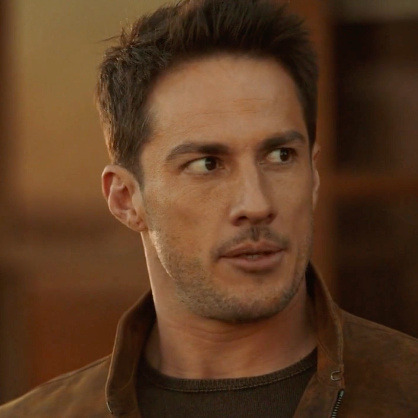#Liz Heather
Text
The Plight Before Christmas - Bob's Burgers

Stop everything you’re doing and watch the newest Christmas Bob’s Burgers. I CRIED ON THE SUBWAY, it’s so good. Christ. I’m trying to decide if it was the general Christmasy vibe that I loved, all the siblings-caring-about-siblings thing or if the music at the end is so Philip Glass-y that I never stood a chance at NOT sobbing. Love, love, love. Take twenty minutes and watch.
And if you’re in the mood for more after this episodes…

#Bobs Burgers#Bob's Burgers#Liz Heather#this is liz heather#Christmas#The Plight Before Christmas#Bobs Burgers christmas episode#Christmas episode#Christmas TV#best Christmas episode
72 notes
·
View notes
Text
What is it with lesbian girls and dying in horrible "accidents"?




#heathers#heather chandler#jawbreaker#liz purr#yellowjackets#jackie taylor#ride the cyclone#ocean o'connell rosenberg
92 notes
·
View notes
Text









⊹ ִ࣪ এ credits on twitter ִ࣪ ⌁ like or reblog if you save! ♡ ¸. • *
#like or reply if you see#like or reblog#like or comment#like or rb if u see#icons without psd#icons sem psd#icons with fans#girls icons#liz gillies#liz gillies icons#elizabeth gillies#elizabeth gillies icons#jade west#heather#heather fox#fallon carrington#gigi#shelby wexler#callie ross#mandy#crystal#victorious#vacation#big time rush#dynasty#sex & drugs & rock & roll#the clique#killing daddy#animal#15 minutes at 400 degrees
21 notes
·
View notes
Text

If you're bored as you wait for the next chance to stuff your face with festive food, here's a little game to pass the time! 🎁🎄
How many of these awesome ladies have you romanced? Did you get a bingo? Let me know in the comments! 🥂
Twitter
#rc game#rc games#rc Twitter#romance club#romance club game#клуб романтики#rc rachel lind#rc sandra#rc mimi#rc mary brown#rc shino odori#rc lima berg#rc tori#rc christina#rc chris#rc delias#rc cindy#rc liz taylor#rc miranda#rc heather#rc aphrodite#rc vanadis#rc yoke van der lusse#rc su#rc Bonne de Pons d'Heudicourt#rc leslie#rc frances#rc kelsie#rc claire#rc mona
24 notes
·
View notes
Text

By: Heather Mac Donald
Published: Dec 15, 2023
University of Pennsylvania president Liz Magill would not have been forced to resign last weekend had Penn’s donors and alumni not been organizing against her for two months.
The Penn rebels have now upped the ante. They have drafted a new constitution for the school that makes merit the sole criterion for student admissions and faculty hiring. The new charter requires the university to embrace institutional neutrality with regard to politics and faculty research. The rebels want candidates for Penn’s presidency to embrace the new charter as a precondition for employment.
With this latest twist in the battle over university leadership, the academy stands at a crossroads. For decades, Wall Street titans funneled billions of dollars into their alma maters, even as those universities promoted ideas inimical to civilizational excellence and economic success. When students started celebrating the October 7 Hamas attacks, however, the mega-donors took note. They did not recognize their campuses, they said, though the pro-Hamas rhetoric came straight from the ethnic- and postcolonial-studies courses that had been a staple of university curricula since the 1980s. Some donors, at Penn and elsewhere, initiated funding boycotts and sought board shake-ups, hoping to pressure their alma maters to correct the anti-Semitism that they deemed responsible for the terror celebrations.
The pro-Hamas protests have exposed the anti-Western ideology that is the sole unifying belief system on college campuses. The question now is whether disgruntled donors and alumni can overcome decades of intellectual misdirection. To do so, they first must define the problem correctly—and avoid the temptation to adopt, for their own purposes, the intersectional Left’s rhetoric about “safety” and “protection” from speech. The proposed new Penn charter is a promising start.
The donor revolt could have broken out at any number of campuses, all of which featured ignorant students cheering on the deliberate massacre of civilians, those students’ faculty enablers and bureaucratic fellow travelers, and feckless presidents. But it first erupted at the University of Pennsylvania and Harvard, perhaps because of the organization and self-confidence of their alumni.
Penn’s most generous donors were already on edge at the time of the October 7 massacre. Two weeks earlier, the university had hosted a conference on Palestinian culture, called the Palestine Writes Literature Festival. The conference speakers were predominantly anti-Zionist; some had long been accused of anti-Semitism. Prominent Jewish alumni, such as Ronald Lauder, demanded that Penn president Magill preemptively cancel the conference. Marc Rowan, chairman of the Wharton School’s Board of Advisors and a $50 million donor to the school, circulated an open letter asking Magill to denounce the conference’s invitations to “known antisemitic speakers,” remove the Penn logo from conference materials, and implement mandatory anti-Semitism training. By September 21, more than 2,000 alumni, including several current members of Penn’s board, had signed the letter.
Conference organizer Susan Abulhawa, a firebrand Palestinian novelist, criticized “the hysterical racist conversations and panic” over the festival. “We remain proud, unbroken, defiant, honoring our ancestors, even though we are battered, colonized, exiled, raw, terrorized and demeaned wholesale,” she announced in typically florid rhetoric. The university tried to split the difference between the festival’s critics and advocates. On September 12, it put out a statement noting “deep concerns about several speakers” and “unequivocally—and emphatically—condemning antisemitism as antithetical” to Penn’s values. The university claimed to “also fiercely support the free exchange of ideas” as central to its educational mission, even ideas “incompatible with [its] institutional values.” The conference went forward without incident, despite the occasional anti-Zionist trope such as might be found on any given day in a Penn class on “settler colonialism.”
Nevertheless, the fuse was ready to be lit. Following the October 7 massacre, Magill made the blunders that would bedevil other college presidents: she did not respond to the attacks with sufficient alacrity to satisfy her critics, and she failed to use the words “I condemn” and “terrorism” when she did respond. By the time she put out a correction on October 15, it was too late; the donor revolt was already spreading. On October 10, Rowan, said to be Penn’s wealthiest alumnus, initiated a second mass movement: a close-the-checkbooks campaign. He urged alumni to send in one dollar to Penn and explain that their ordinary contributions would be suspended until Magill and the chair of Penn’s board, investment bank CEO Scott Bok, resigned. Rowan began emailing a letter to the trustees every day, selecting from among the thousands of such letters from major donors who were closing their checkbooks.
Despite a flurry of big-name and big-dollar defections, including Jon Huntsman (former governor of Utah and ambassador to Russia, China, and Singapore) and David Magerman (a major donor and former overseer of the engineering school), Penn’s power structure was reinforcing its defenses. Throughout October, Penn’s board of trustees put out various statements in support of Magill and Bok; the president of Penn alumni weighed in as well in favor of the status quo.
Behind the scenes, Bok asked the three trustees who had criticized him to resign and suggested that Rowan reconsider his chairmanship of the Wharton board. Leaders of the faculty senate put out a statement on October 19 denouncing “individuals outside of the University who are surveilling both faculty and students in an effort to intimidate them and inhibit their academic freedom.” The senate “tri-chairs” played the wealth card against the recalcitrant donors: academic freedom was “not a commodity that can be bought or sold by those who seek to use their pocketbooks to shape our mission.”
The hypocrisy had reached gargantuan proportions. Even as Penn’s leadership and faculty proclaimed their devotion to free speech, law professor Amy Wax was in the dock for statements criticizing racial preferences and U.S. immigration policy. Since publishing an op-ed in the Philadelphia Inquirer in 2017 advocating the embrace of bourgeois values as a means of economic and social advancement, Wax had been under relentless attack from the law school’s leadership and faculty. The leadership had banned her from teaching first-year law courses. In 2022, Penn initiated a formal investigation to determine whether her “intentional and incessant racist, sexist, xenophobic, and homophobic actions and statements” were serious enough to require a “major sanction” that could include stripping her of tenure and firing her.
No leader of Penn’s faculty senate and no representative from its chapter of the American Association of University Professors objected to the hounding of Wax for protected speech. The board looked the other way. Yet here they all were, declaring Penn a lighthouse of free expression. In fact, the campus Left and its administrative enablers accused their opponents of double standards, since some donors were calling for bans on anti-Israel speech. After the Penn trustees voted to express their confidence in Magill and Bok on October 16, trustee Andy Rachleff, co-founder of Benchmark Capital, scoffed: “There are a lot of people who want free speech—except when it affects them.”
As December began, Magill was acting like a president confident in her staying power—namely, one given to announcing hollow new initiatives couched in vapid bureaucratic prose. On November 30, she released “In Principle and Practice,” a “strategic framework that emphasizes strengthening community, deepening connections, cultivating service-minded leadership, and collaborating across divisions and divides.”
The rebels were in a self-reflective mood. The damage will take generations to undo, one told me. “I hope we have the staying power.” Another said: “I’m mad at all of us. We all kind of knew [how bad things were]. But I’ll be brutally honest: we all wanted the option of having our children and grandchildren go to Penn. If donors say that that is not part of why they donate, they are not telling the truth. We should’ve stopped years ago because we were giving them the rope to hang us with.”
This donor was under no illusion about the ruling ideology on campuses: “If you’re successful and white, you’re evil; if you’re unsuccessful and brown, you must be right.” Yet despite such knowledge, he admits that he was on contribution “autopilot.”
Then Magill and the presidents of Harvard and MIT were called to testify on campus anti-Semitism before a House committee on December 5. That hearing was itself the result of discussions between the Penn donors and committee members. All three presidents came in for a drubbing, above all for their unwillingness to agree that campuses should punish calls for the genocide of Jews. (The question itself was hypothetical; the committee’s lead prosecutor, New York representative Elise Stefanik, extrapolated from actual student chants of “intifada” to a hypothetical call for Jewish genocide.) The resulting uproar was bipartisan. Though it was the genocide question that garnered the most attention, the presidents’ shameless untruths about their campuses’ free-wheeling intellectual environments should have been the most damning.
Another petition against Magill was launched, this time on Change.org. It quickly garnered more than 12,000 signatories. On December 7, Ross Stevens, CEO of Stone Ridge Asset Management, withdrew a $100 million gift that had funded a center for finance at the Wharton School. He would consider restoring the funding only if Magill was replaced.
Penn’s board held an emergency meeting the next day, but it once again declined to oust Magill or Bok. Magill tried to stanch the bleeding by declaring on video that she now understood that some forms of anti-Israel speech must be prohibited on campus.
Magill did not survive the storm. She offered her resignation on December 9. Most surprisingly, Bok tendered his resignation as well. The rebellious donors were jubilant, since they understood that the critical lever for institutional change was boards of trustees, known heretofore only for their hands-off, see-no-evil rubberstamping of whatever direction a university might choose.
Meantime, Harvard’s president Claudine Gay was facing her own crisis, albeit without the same level of organizing behind it as the crisis that had brought down Magill. Some of Harvard’s wealthiest donors had also been closing their checkbooks since October 7, due to Gay’s perceived foot-dragging when it came to condemning the terror attacks. Billionaire investor Bill Ackman had called for the release of the names of student signatories to an early pro-Hamas letter so that firms could avoid hiring those students. The Kennedy School lost millions of dollars in donations. Former Massachusetts governor Mitt Romney, investor Seth Klarman, and three other Harvard Business School graduates responded to the spreading campus militancy on October 23 in an “Open Letter to Harvard Leadership Regarding Antisemitism on Campus.” The letter attracted more than 2,300 alumni signatures in two weeks.
Ackman, who has taken the lead in the campaign against Harvard, had been going through a very public education about the diversity, equity, and inclusion complex. On November 6, he admitted on CNBC that until recently he had never read Harvard’s Diversity, Equity, and Inclusion statement. When he did, he was surprised to learn that the school’s DEI mandate did not cover “all marginalized groups,” as he put it, such as Asians and Jews. The solution, in Ackman’s view, was to expand the diversity bureaucracy’s client base to include the full panoply of students and faculty who were “at risk of being taken advantage of, of being harmed, of being emotionally harmed,” in his words, by the “majority.” This recommendation showed that Ackman, a liberal Democrat, remained naive about the university. The alleged “marginalized groups” at Harvard and elsewhere are at zero risk of being harmed by the majority; they are petted and fêted at every possible opportunity by an ever-diminishing white subset of the campus population that either embraces its fictional role of oppressor or is dragooned into playing one. A month later, Ackman was calling for the elimination of DEI, though he rushed to deny that he meant to “suggest whatsoever that the goal of a diverse university that is welcoming for all should be abandoned.” But Harvard is already welcoming to all; its only goal should be to provide the most rigorous possible intellectual training for its students.
Harvard had lost billions of dollars in donations since October 7, according to another Ackman missive. Harvard’s overseers met over the weekend of December 9 to consider Gay’s tenure. On December 12, the fellows of the Harvard Corporation announced that Gay retained their ongoing support as the “right leader to help our community heal and to address the very serious societal issues we are facing.” Harvard’s mission, the fellows reiterated at the end of their letter, was addressing “deep societal issues.” What those deep societal issues were, the corporation failed to say—possibly anti-Semitism, but the chances were great that they meant the usual deep issue: racism.
Gay had a supreme advantage that Magill lacked: the magic amulet of race. Magill could check off just one box in the victim sweepstakes: being female. Gay was not only female but the “first black president” of Harvard, as her supporters in the media never tired of reminding us. (MIT president Sally Kornbluth also survived the House anti-Semitism hearing. But MIT’s alumni were only starting to organize against the school’s leadership and had yet to bring significant financial pressure to bear against the school.) The Harvard Corporation is itself 27 percent black (twice the percentage of blacks in the national population) and 36 percent URM (underrepresented minorities, when its Hispanic member is included).
Almost all of Harvard’s black professors wrote a letter as “Black members of the Harvard university faculty” urging Gay’s retention. Any suggestion that Gay was elevated “based on considerations of race and gender are specious and politically motivated,” the professors wrote. Never mind that the chair of the presidential search committee, senior corporation fellow Penny Pritzker, had lauded Gay’s “inclusiveness” and deep appreciation for “diverse voices” upon announcing Gay’s selection. (That the signatories to the current letter of support were themselves all black was apparently another coincidence.) While serving as dean of the faculty of arts and sciences, Gay had released an eight-page template for upping Harvard’s anti-racism work in the aftermath of the 2020 George Floyd race riots. The document, promising an orgy of race-based hiring and curriculum changes, was an early pitch for the presidency. Gay sought, she wrote, to “challenge a status quo that is comfortable and convenient for many.” Read: for Harvard’s whites, who are presumably responsible for the university’s failure to be “truly inclusive,” and who perpetuate the “devastating legacies of slavery and white supremacy.”
Notwithstanding the black faculty’s claim that Gay’s race was irrelevant to her presidency, Harvard’s black alumni also felt called upon to write the fellows in support for Gay’s efforts to build, as they put it, a more “inclusive community.” Her “leadership at Harvard as a Black woman” was “critical and deserving of the opportunity to coalesce and take shape,” the alumni wrote. Gay’s status as the daughter of Haitian immigrants allows her to understand better than anyone else the need for Harvard to “stand against hate,” the black alumni argued. Gay’s rapid ascent up the academic hierarchy—as an undistinguished scholar, at best—represented a triumph over the hate directed at immigrant daughters, we are to believe, however invisible such hate might be to the untrained eye.
This is the first of a two-part article. Tomorrow: Penn 2.0 and the traps awaiting reformist alumni.
#Heather Mac Donald#pro hamas#academic corruption#antisemitism#pro palestine#islam#islamic terrorism#terrorism supporters#islam apologists#religion#hamas terrorism#University of Pennsylvania#Liz Magill#diversity hire#DEI bureaucracy#defund DEI#religion is a mental illness
5 notes
·
View notes
Text

Jack Ohman, Sacramento Bee
* * * *
LETTERS FROM AN AMERICAN
December 5, 2023
HEATHER COX RICHARDSON
DEC 6, 2023
A new filing today by Special Counsel Jack Smith in the case United States of America v. Donald J. Trump for his attempt to overturn the results of the 2020 presidential election shows Smith’s office establishing that Trump has a longstanding pattern of refusing to accept election results he dislikes.
As early as 2012, the filing notes, Trump baselessly alleged that voting machines had switched votes intended for Republican presidential candidate Mitt Romney to Democratic presidential candidate Barack Obama. In the 2016 campaign he “claimed repeatedly, with no basis, that there was widespread voter fraud,” and publicly refused to commit to accepting the results of that election. This pattern continued in 2020, but in that election he took active steps to seize power.
The filing introduced information that Trump, an agent, and an unindicted co-conspirator tried to start a riot at the TCF Center in Detroit as vote counting showed Biden taking the lead. As Josh Kovensky of Talking Points Memo points out, this scheme sounds much like the Brooks Brothers Riot of 2000 that stopped vote counting in Miami-Dade County in Florida. Roger Stone was a participant in the Brooks Brothers Riot; in 2020 he was working to keep Trump in office.
Smith’s team shows how this pattern continued to play out in the 2020 election, with Trump urging supporters like the Proud Boys to back him, falsely asserting that the election had been stolen, and attacking former supporters who denied that the election had been stolen. The pattern has continued until the present, with Trump calling those who were found guilty of offenses related to the attack on the U.S. Capitol “hostages” and claiming they were “treated horribly.”
Smith recounts these facts to establish Trump’s motive and intent on January 6, but his identification of a longstanding pattern indicates it would be a grave mistake to think Trump has any intention of campaigning fairly or accepting any result in 2024 other than his return to the White House.
New House speaker Mike Johnson (R-LA), who has endorsed Trump for president and was a key organizer of the congressional effort to keep Trump in office, has promised to release all the surveillance footage from the U.S. Capitol on January 6. Trump supporters insist that the full tapes will reveal that the attack was not as bad as the House Select Committee to Investigate the January 6th Attack on the U.S. Capitol showed. Johnson said that the tapes must be shared publicly for “transparency.”
Today, Johnson supported Trump’s message about January 6 when he said that he was making sure the faces of rioters are blurred in the surveillance footage. "We have to blur some of the faces of persons who participated in the events of that day because we don't want them to be retaliated against and to be charged by the DOJ [Department of Justice] and to have other, you know, concerns and problems," he said. Johnson’s spokesperson quickly walked back the comment, saying Johnson meant to say that faces were blurred to prevent “all forms of retaliation against private citizens from any non-governmental actors.”
Also today, Kash Patel, who served on Trump’s national security team and is widely expected to return in a second Trump administration, expanded the authoritarian threats Trump people have been making to include the media. On former Trump ally Steve Bannon’s podcast, Patel promised that the Trump team would fill government positions from top to bottom with loyalists and would use the Department of Justice to go after those perceived to be Trump’s enemies.
“We will go out and find the conspirators, not just in government but in the media,” Patel said. “Yes, we’re going to come after the people in the media who lied about American citizens, who helped Joe Biden rig presidential elections—we’re going to come after you. Whether it’s criminally or civilly, we’ll figure that out.”
Yesterday, former representative Liz Cheney (R-WY), who is promoting her new book, Oath and Honor: A Memoir and a Warning, called out Senator Tommy Tuberville (R-AL) for his continuing hold on military appointments that kept more than 450 routine promotions from taking effect over the past ten months. Tuberville claimed his refusal to permit the nominees’ confirmations was an attempt to change Pentagon policy of permitting leave for service members in states that ban abortion to obtain abortion care elsewhere. But on NPR yesterday, Cheney wondered: “Why is Tommy Tuberville doing that? Is he holding those positions open so that Donald Trump can fill them?”
Today, under great pressure from members of his own party who worried the Democrats would change the rules to weaken the power of the Senate minority, Tuberville released his hold on most of the nominees. The Senate promptly confirmed 425 of them.
Still, Tuberville retained holds on 11 officers of the most senior rank. According to congressional reporter for Punchbowl News Andrew Desiderio, the positions left vacant are commander of Pacific Air Forces, commander of U.S. Pacific Fleet, Air Component Command for the United States Indo-Pacific Command, commander for Air Combat Command, the head of the Navy’s Nuclear Propulsion Program, the head of Northern Command (which defends the United States and coordinates defenses with Canada, Mexico, and the Bahamas), the head of the U.S. Cyber Command, vice chief of staff of the Army, vice chief of staff of the Air Force, vice chief of Space Operations, and vice chief of Naval Operations.
Last night, Cheney explained to political commentator and television host Rachel Maddow exactly what a second Trump presidency would look like, Cheney said: "He would take those people who are the most radical, the most dangerous, who had the proposals that were the most dangerous, and he will put them in positions of supreme power. That's a risk that we simply cannot take."
Mark Joyella of Forbes took note of Maddow’s introduction last night, in which the host stressed the importance of protecting democracy. She began by emphasizing how much she and Cheney disagreed about everything in politics, so much so that it was as if they were on different planets at war with each other.
Maddow made that point, she said, because “in civic terms, in sort of American citizenship terms, I think it's really important how much we disagree. It's important how far apart we are in every policy issue imaginable. It is important that Liz Cheney is infinity and I am negative infinity on the ideological number line. It's important because that tells you how serious and big something has to be to put us, to put me and Liz Cheney, together on the same side of something in American life.”
The Rachel Maddow Show was the most watched news show on cable television last night, with 3.15 million viewers. The Fox News Channel’s show Hannity, hosted by personality Sean Hannity, had just under 2 million viewers.
It seems clear Americans are waking up to Trump’s threats to stack the government with loyalists, weaponize the Justice Department and military, deport 10 million people, and prosecute those he perceives to be his enemies in politics and the media. Interviewing Trump tonight, Hannity tried to downplay Trump’s statements about his authoritarian plans for a second term by getting him to commit to staying within the normal bounds of a president should he be elected in 2024. The first time he was asked, Trump sidestepped the question. So Hannity asked again. “Under no circumstances, you are promising America tonight, you would never abuse power as retribution against anybody?” he asked.
“Except for day one,” Trump responded.
LETTERS FROM AN AMERICAN
HEATHER COX RICHARDSON
#Letters from an American#Heather Cox Richardson#democracy#election 2024#Weaponize the DOJ and military#Liz Cheney
3 notes
·
View notes
Text
So last week liz took me to see a local production of heathers, which was the first time I’ve actually seen the show the whole way through, which was really interesting. The thing is, the production had a Diversity Equity and Inclusion guy listed on staff, which makes sense for a black comedy from the 80s, but ALSO there were several asian americans in the main cast and I think they must’ve been pretty strategic about casting in a pretty interesting way. heather chandler, JD, and martha were the characters in the principle cast that were played by asian americans, and it reminded me of the book ‘Forever Foreigners or Honorary Whites?: The Asian Ethnic Experience Today’—if heather c was the only asian american, that’d have unfortunate implications with ideas of assimilation/privilege (sidebar, I’ve talked to friends who live/have lived on the west coast and they’ve told me ‘yeah asian americans on the west coast are SOOO DIFFERENT from asian americans in other parts of the usa’ which is pretty interesting, but I’d imagine it’s dependent on how high the asian population is in any given place—I’m not on the west coast but my high school was like 30% asam and I’m pretty sure I walk around with less baggage than asam folks who don’t have that experience) and if JD was the only asian american that’d have really unfortunate implications mirroring that whole Yellow Peril Those Barbaric Asian Men Are After Our White Women (which, with an ungenerous reading one could argue that those implications are there anyway, but I think that having heather c as asam it leaves room for that *dichotomy*—while it’s pretty common nowadays in the usa to consider asam folks as ‘honorary whites’ [when it’s convenient], having asam characters that counter that perspective [both JD and Martha] allows room for more nuance). (another sidebar, JD is a character where I feel like the narrative is less difficult to navigate if he’s played by a white actor because it becomes more delicate if he’s played by any actor of color—I think it worked for that production, and of course I’m mega biased [pan-ethnic solidarity] [lol] so this did get me way more sympathetic to JD than I no doubt would’ve been if he had been played by a white actor). and if only JD and heather c were played by asam actors—well imo that dichotomy would be enough for some nuance, but—it’s still kind of in the unfortunate implication zone with them both being primarily antagonists, and having martha played by an asam actor neutralizes some of those implications by being a purely sympathetic character. so to me it feels like it definitely works in a way that the tv show casting Really Did Not. anyway, I’m talking about all this separate from performances, but they were all really good too—heather c was doing high kicks in insane heels??? and ballet in bathroom slippers??? also my bias kicked in for her too, she did a great job playing a severe and ruthless terrible person (lol).
#talking abt musicals#there were some strange decisions#like ‘yo girl’ they had more than just the dead people singing it??#heather mac was there??? why???#and they also had like… the ghosts and some ensemble cast wearing 3d glasses sometimes#liz was saying it was probably to convey#that it was nondiagetic and they weren’t actually there#but I think that’s unnecessary it’s obvious that they’re not actually there singing Yo Girl#everything else that stuck out to me was more an issue with the actual show than the production#I would’ve liked if heather c was more significantly Haunting The Narrative#and I do not love ‘I love my dead gay son’#don’t get me wrong the cast did a GREAT job#one of the dads did a death drop it was very impressive#but it’s like#ok what makes a lot of heathers work#is that it’s Dark Stuff that’s interrupted/punctuated by comedic moments#so even if it’s funny you can still be engaged emotionally#the pathos is still strong or still at the forefront#you get a break from it but you don’t forget it#when it’s comedy punctuated by dark stuff I think it’s out of wack#that makes it feel like it’s being trivialized#or like you can’t get a sense of the pathos because stop thinking about that we’re back to the jokes#the balance is off
5 notes
·
View notes
Photo


Heather Hemmens steps behind the camera for a second time on Roswell, New Mexico (after Season 3’s “Goodnight Elizabeth”) with the August 22 episode, “Follow You Down.”
The Scooby gang is facing a couple challenges as the series approaches its finale. Just as Liz (Jeanine Mason) begins to see the error of her ways, she must make a difficult decision when faced with a new threat. Meanwhile, Michael (Michael Vlamis), who was last seen walking through the portal into the liminal space in order to hopefully find Alex (Tyler Blackburn), begins losing hope of that reunion. Plus, Max (Nathan Dean) finds himself in an intense standoff.
Here, Hemmens previews the episode, takes us inside directing the liminal space scenes, and teases how the series ends for Maria.
Preview the episode. How is Liz doing and how is everyone handling what she’s been up to with that mist?
Heather Hemmens: Liz is going through withdrawal from the mist, so she’s really, really struggling and she needs it to continue doing her research. She’s trying to convince the gang that she should acquire some more mist and they want her to stop altogether. There’s a little bit of an intervention that happens there and it doesn’t really go well. The whole team is on board though, so that’s nice to see everyone in support of her, but Liz is prepared to fight. So she puts up a struggle when they’re trying to get her to wean off the mist.
Then there’s Michael trying to find Alex. What can you tease about his search? Because last we saw, he walked through that portal.
Yes, he’s going in, he’s on the hunt. It is going to be such a ride following Michael down into the liminal space. He finds a lot of things there that reveal a lot about our show and even reveals some about their home planet because there’s a little bit of mimicking that happens in the liminal space. So he finds a lot of things there, but I can’t specifically say who or what or even what time they’re in. It’s a very interesting space and I was so happy to explore the liminal space more in my episode.
What about this episode excited you as a director?
[Laughs] This is a teaser. There is a moment in this episode that I feel like myself and the fans have been waiting — not just this whole season, but this whole series — for a couple things to culminate. And this being our 50th episode, I was so excited when I got the script, because I feel like we have really, really special moments for the entire show that come through in this episode. And it was such an honor to be able to direct those. Everyone’s gonna have to watch and see what they are, but I can tell you that there are massive payoffs in this episode.
How did your approach to directing the liminal space scenes differ from the rest of the episode?
That’s an interesting format that we use. Most of the lighting is done in post. We shoot all of the liminal space during the day and then they darken it with a filter in post, which gives it almost a black and white hue. And so the trick with the liminal space is definitely the lighting, like the candles or any flashlights or anything that we were using had to be adjusted for the liminal space. So that was something that the DP, David Daniel, and I talked about extensively before we were shooting. Because it was only introduced in the episode before mine, so it hadn’t been fully established yet so that was something that we really had to plan out thoughtfully. And it was really fun to have that challenge.
Maria’s had quite a journey so far when it comes to her abilities, then this season she had to grapple with possibly losing them only to gain something new. How is she feeling about all of that at this point?
She was pretty dejected for a little while. She was really bummed that this skill that she was just beginning to be able to control and enjoy and explore and made her feel like a part of the team was suddenly just yanked away from her. Liz was just trying to help, but the treatment that she gave her really took away some of that capability. So now that she’s found another way to get back in the game, she’s really happy to explore this side. And she found the liminal space, she found the portal, and so she’s really feeling like part of the Scooby gang again.
What’s going on with her love life? Gregory’s (Tanner Novlan) not around, but then there could be something going on with Dallas (Quentin Plair) maybe…
Yeah, maybe. [Laughs] There is a slight flirtation there, so we’re gonna see which direction that goes, but it’s a really nice way to have a connection to someone becoming friends first and we’ve really seen their friendship blossom. They’ve become teammates through this whole experience. And so they’re thinking that they’re just buddies, but it is starting to take shape to be a little bit more flirtatious than that.
Whatever happens with her love life, it’s just so much less complicated now.
Yes, Maria is really focused on her friends, on finding Alex. She’s not letting romance distract her as much these days, which I think is a very empowered place to be. And I like that she’s taking care of herself. She had a really difficult time losing her mother and trying to maintain some thread of connection there that she can’t find in her mother’s afterlife. So Maria has a lot going on and it is nice for her to not be focusing so much on the romance.
What can you tease about how the series ends for Maria?
There is a moment where you go, oh, that’s nice. Maria has it all. She has it all. She gets it all. Even after all the difficult things that she’s been through and the heartache and the tragic loss, it really ends on a high note for Maria.
#rnm 4x11#rnm spoilers#malex#alex manes#michael guerin#rnm cast interviews#heather hemmens#liz ortecho#maria deluca
24 notes
·
View notes
Text
youtube
#Ryan Gosling#this is liz heather#Liz Heather#funny#Ryan Gosling best SNL sketch#SNL#best SNL sketch#the engagement SNL#funny SNL#Youtube
5 notes
·
View notes
Text
Liesl has all this smoke for Liz when Heather, Joss, Carly, and Dex deserve it more. Ridiculous.
#general hospital#heather killed britt#and carly/joss/dex kept quiet about everything to protect themselves#but NOOOOOO it's liz who's gonna be slapped 😒
6 notes
·
View notes
Text
so veronica would fight for jd but whos gonna fight for me huh 🤨🤨
6 notes
·
View notes
Text



4x12 stills and episode summary
FIND A WAY– Liz (Jeanine Mason) is faced with an impossible decision, meanwhile Max (Nathan Dean) agrees to join Isobel (Lily Cowles) on a mission to save Bonnie (guest star Zoe Cipres). The series also stars Michael Vlamis, Tyler Blackburn, Heather Hemmens, Michael Trevino and Amber Midthunder. The episode was directed by John Hyams and written by Jenny Phillips & Onalee Hunter Hughes
#roswellnewmexico#roswell new mexico#max evans#liz ortecho#nathan parsons#nathan dean parsons#roswell nm#roswell#roswell cw#maxwell evans#echo#jeanine mason#lily cowles#michael trevino#heather hemmens
16 notes
·
View notes
Text

Roswell New Mexico - Episode 4.11
Quality : HD Screencaptures
Amount : 1.169 files
Resolution : 1.920 x 1.080 px
-Please like/reblog if taking!
#grandecaps#roswell new mexico#roswell cw#roswelledit#roswell new mexico edit#roswell new mexico cw#nathan parsons#max evans#jeanine mason#liz ortecho#michael vlamis#michael guerin#tyler blackburn#alex manes#amber midthunder#heather hemmens#michael trevino#capped by macfraser82
9 notes
·
View notes
Video
Michael Trevino as Kyle Valenti in Roswell, New Mexico “Two Sparrows in a Hurricane” (4.12) - Kyle, Liz and Rosa (+ Maria)
#roswell new mexico#michael trevino#kyle valenti#rosa ortecho#liz ortecho#maria deluca#amber midthunder#jeanine mason#heather hemmens#rnm 412#rnm s4#video
8 notes
·
View notes
Text
Liesl, babygirl, I know you’re hurting but your rage is kinda misdirected rn…!
#general hospital#pentababbles#u ain’t gotta attack Liz she didn’t even kill Britt that was heathers fault???#girl go hunt Heather down in darcham and kill her there. make her death look like a suicide 😈
3 notes
·
View notes








